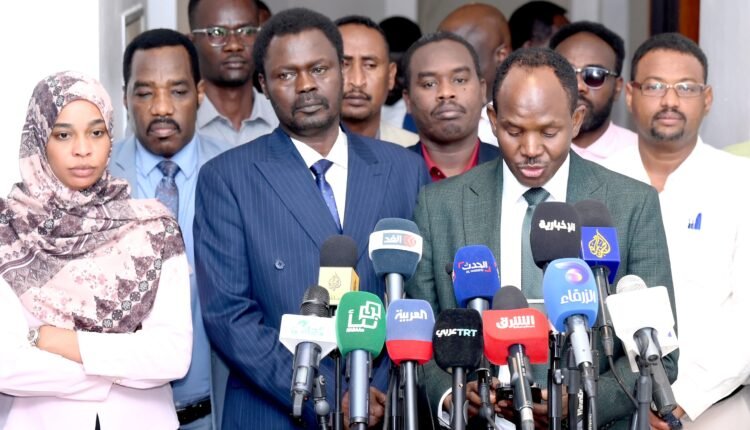What Role Can the Democratic Bloc Play in Sudan’s Political Landscape?

Port Sudan – Sudanhorizon – Talal Ismail
The head of the Political Committee of the Democratic Bloc, Minni Arko Minnawi, stated that the bloc aims to develop its vision for a comprehensive solution to the country’s crises and to advance the Sudanese-Sudanese dialogue.
Following the conclusion of the first day of the committee’s meetings on Sunday evening in Port Sudan, Minnawi said:
“Today, we held an important meeting of the Political Committee of the Democratic Bloc of the Forces of Freedom and Change. We discussed the current developments in the political scene, the ongoing efforts to form a cabinet, and the dire humanitarian conditions in several besieged cities – with El Fasher as an example – in addition to the efforts being made to achieve peace and advance democratic transition in Sudan.”
He continued:
“We stress the importance of developing the Democratic Bloc’s vision for a comprehensive solution in the country, and we are working hard for a better future for all Sudanese.”
Regarding the Sudanese dialogue, Minnawi stated:
“We are in contact with all political forces regarding the launch of the Sudanese-Sudanese dialogue and are awaiting the right moment after peace has been achieved.”
In response to journalists’ questions about the movements’ nominees for ministerial portfolios in the “Government of Hope” led by Kamil Idris, Minnawi said:
“We have no nominee who has been rejected for a ministerial post – all our candidates are patriotic,” affirming that there is no crisis arising from the delay in announcing the rest of the cabinet. He added:
“We do not consider it a crisis; we have submitted the movements’ nominees to the Prime Minister in accordance with the Juba Agreement.”
In a statement issued after the conclusion of the first day’s session, the Political Committee extended greetings and congratulations to the Sudanese Armed Forces, the Joint Force, and the supporting formations on the occasion of victories on various battlefronts. The meeting also praised the resilience of the cities of El Fasher, Babanusa, Kadugli, and Dilling.
The committee condemned the unjust siege imposed by the Rapid Support Forces (RSF) around the city of El Fasher for over a year, which has prevented the delivery of food, medicine, and essential life supplies. It also denounced the international silence regarding RSF violations, the militia’s rejection of the truce proposed by the UN Secretary-General, and its failure to abide by UN Security Council Resolution No. 2736 issued on 13 June 2024.
The meeting warned that negative international interference in Sudanese affairs contributed to the outbreak of war. It affirmed that the roadmap for resolving the crisis in Sudan must be formulated by Sudanese political and societal forces through genuine national will, reflecting the aspirations of the Sudanese people and taking into account the complexities of the Sudanese context. The meeting also emphasised the importance of accurately defining the conflict as a rebellion by the Rapid Support Forces against the Sudanese state.
The meeting welcomed the statement made by the US Secretary of State on Sudan and praised the efforts of Egypt, the Kingdom of Saudi Arabia, and the United States to resolve the Sudanese crisis. It firmly stated its position that the United Arab Emirates is not fit to serve as a mediator or play any role in Sudan’s peace at this time.
The meeting reaffirmed its support for neighbouring countries that have stood with the Sudanese people, commending the clear positions of Egypt, Saudi Arabia, and Eritrea in backing the unity and sovereignty of the Sudanese state, along with all countries that have supported the will of the Sudanese people, hosted Sudanese citizens, and helped alleviate their suffering by providing humanitarian assistance.
The meeting discussed the Prime Minister’s efforts to form the government and approved support for the Prime Minister. The bloc also reiterated its commitment to a democratic civilian transition, stressing the need for a broad national consensus that would contribute to resolving Sudan’s crisis. This consensus, the bloc stressed, must be the result of an inclusive Sudanese dialogue that excludes no one, with mutual agreement on its procedures, management, location, funding, and agenda.
The meeting concluded by affirming that its sessions would continue until a comprehensive vision for sustainable peace is reached, and announced that this vision would be presented to all Sudanese.
Shortlink: https://sudanhorizon.com/?p=6452

